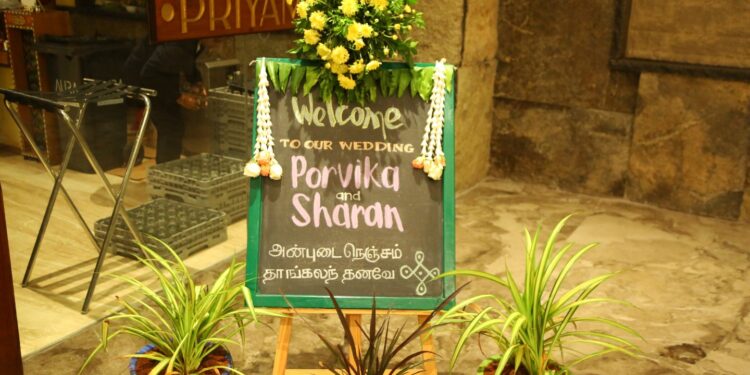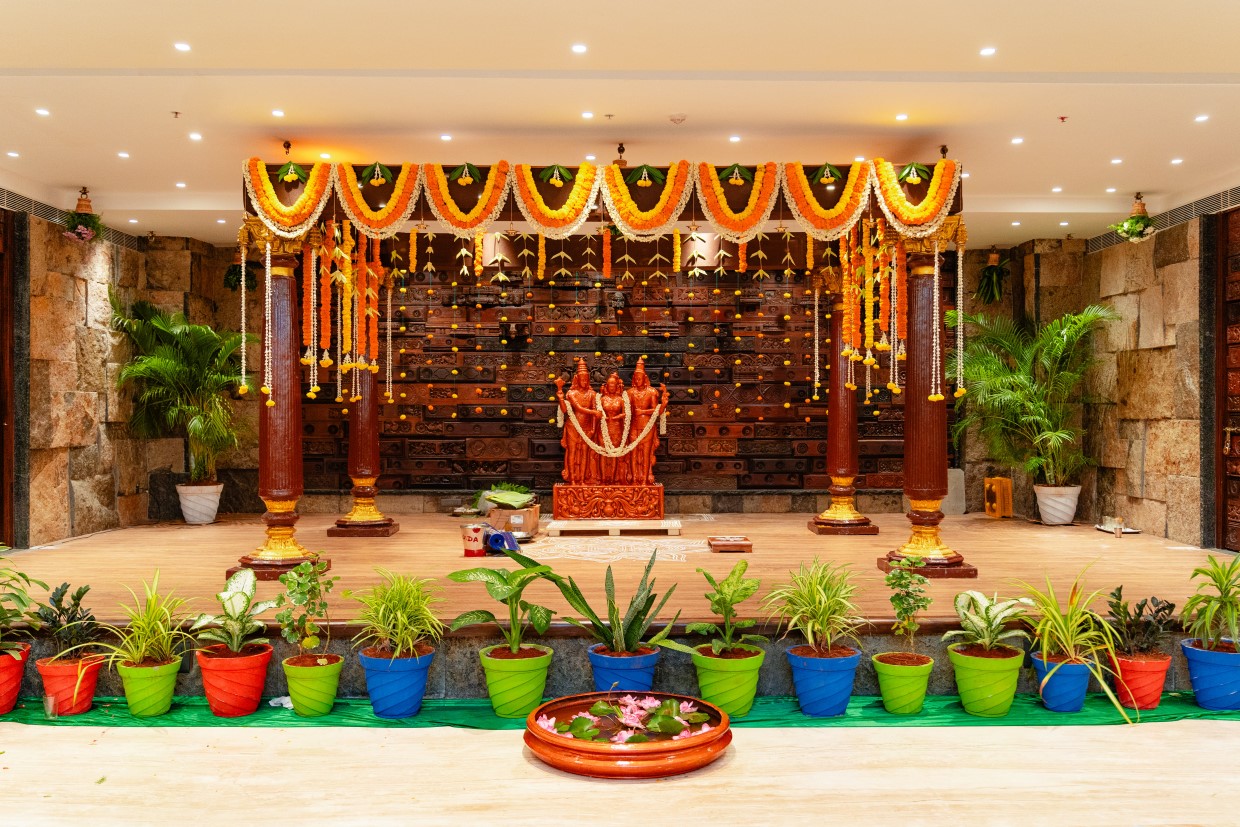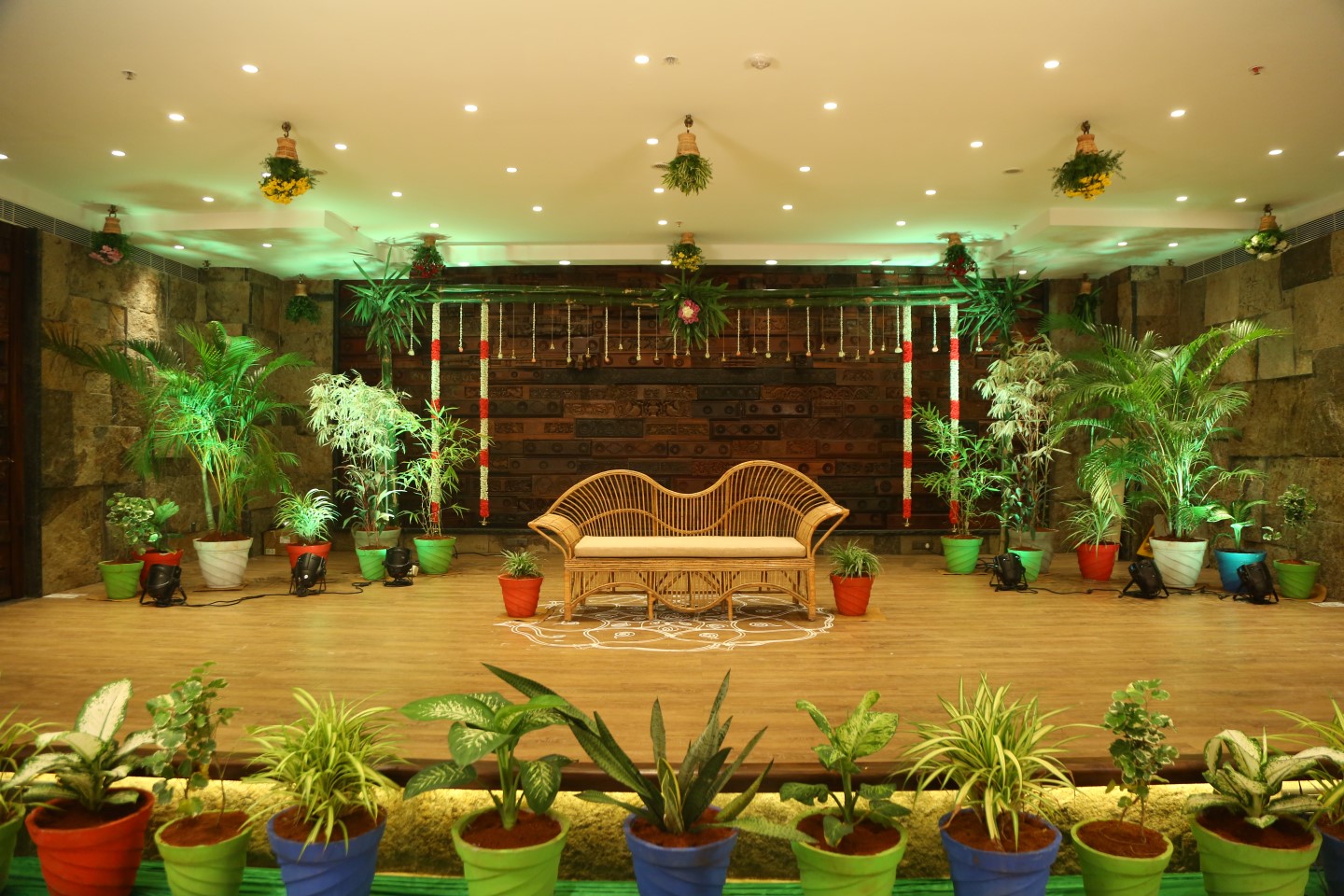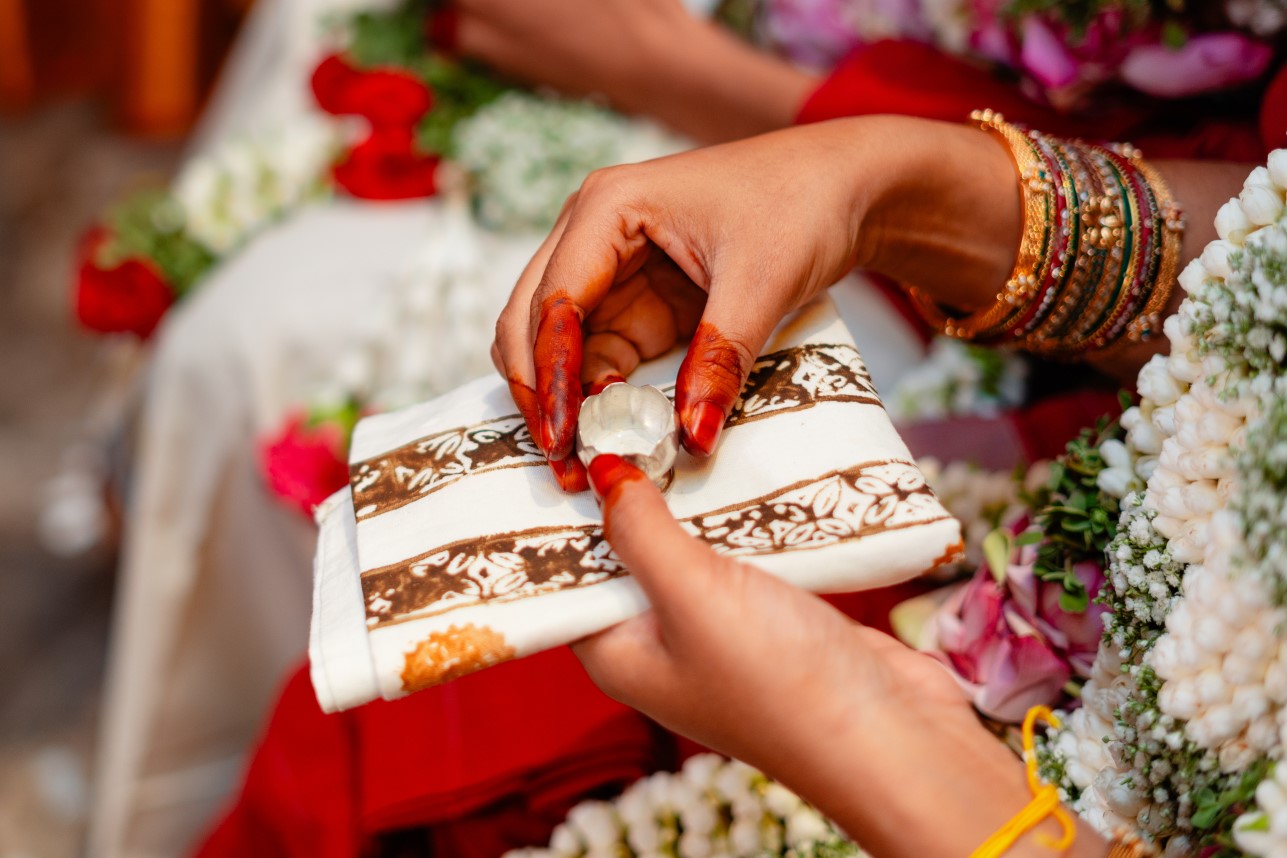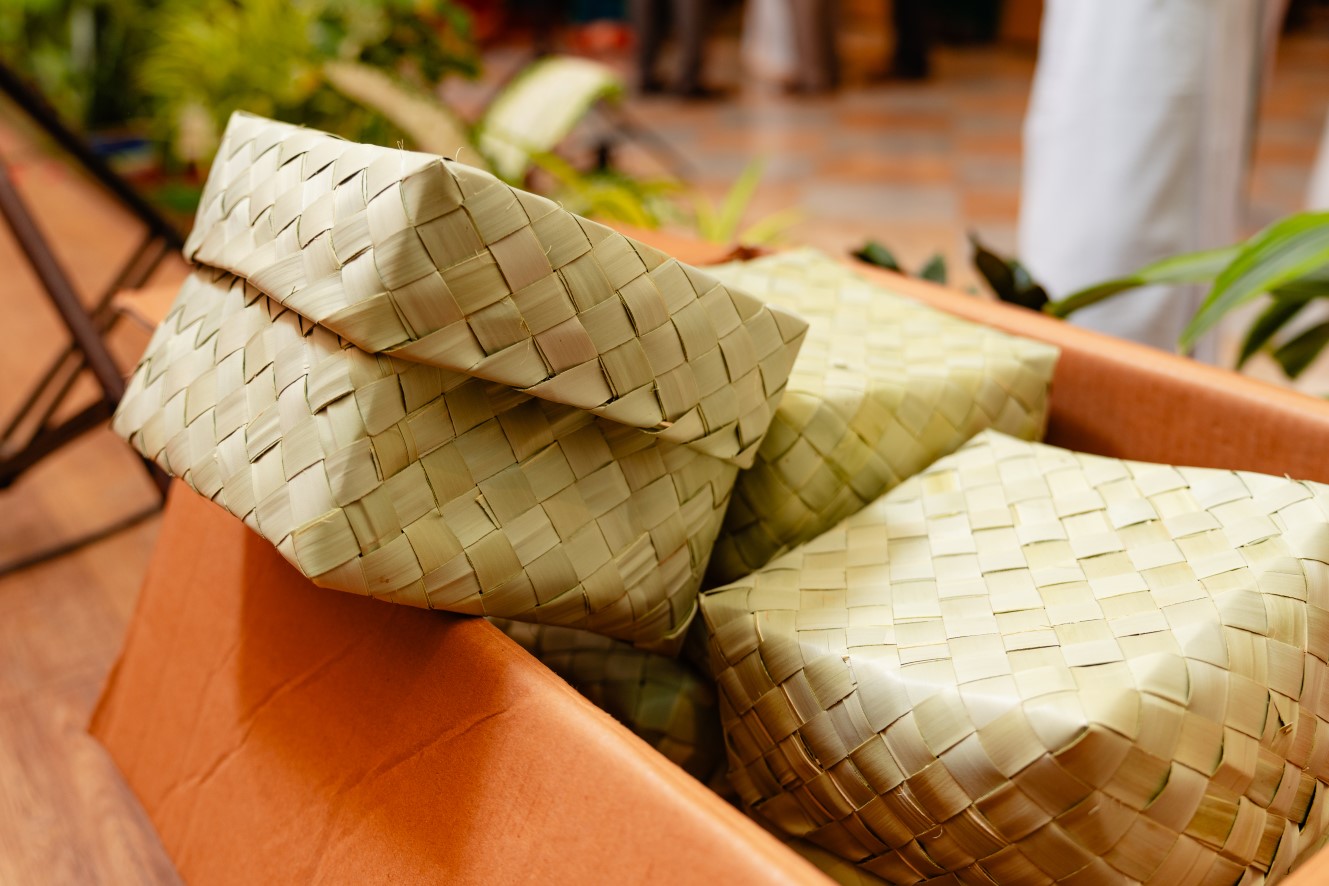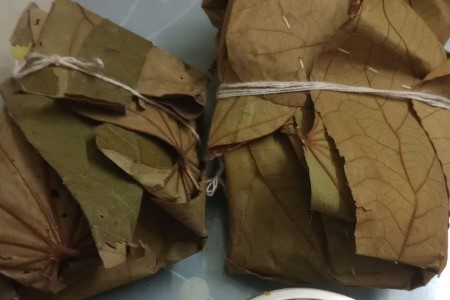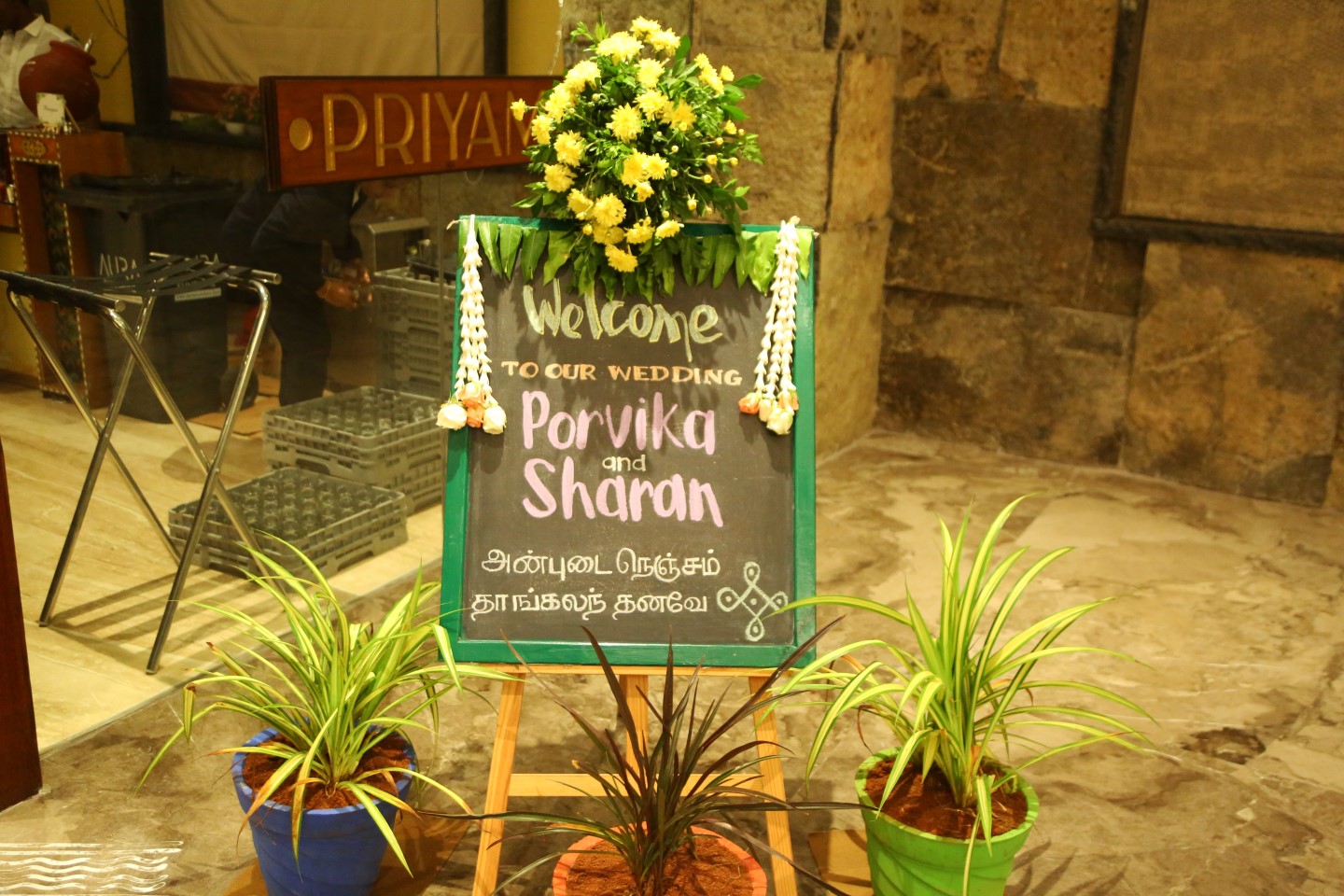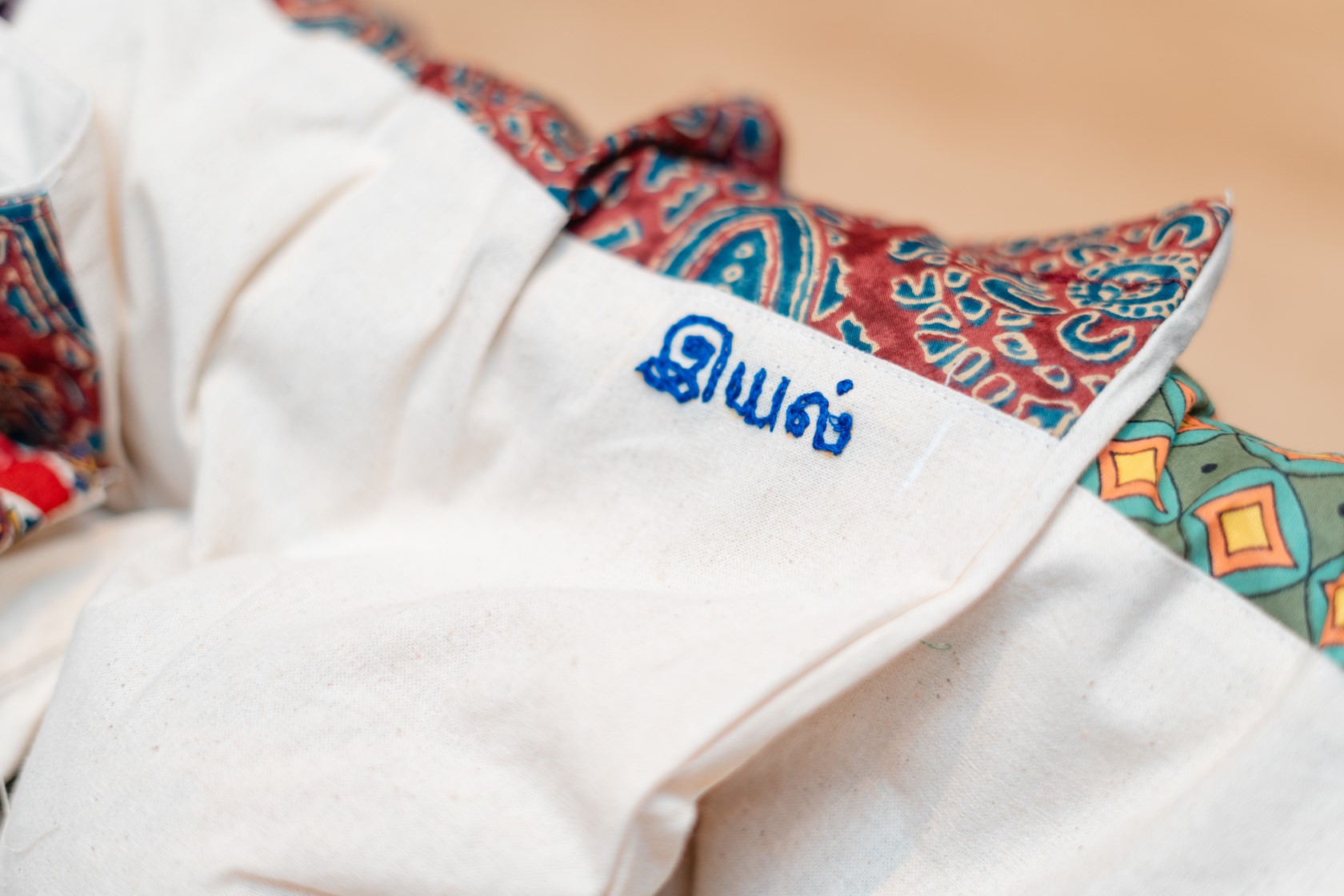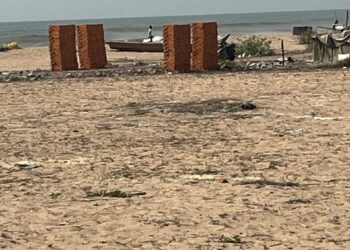By R.Swathi
Sharan and Porvika’s wedding invitation (Aug.30) was more than just an invite. It laid out hard-hitting facts bare, probing invitees on their sustainability choices. The invite stated:
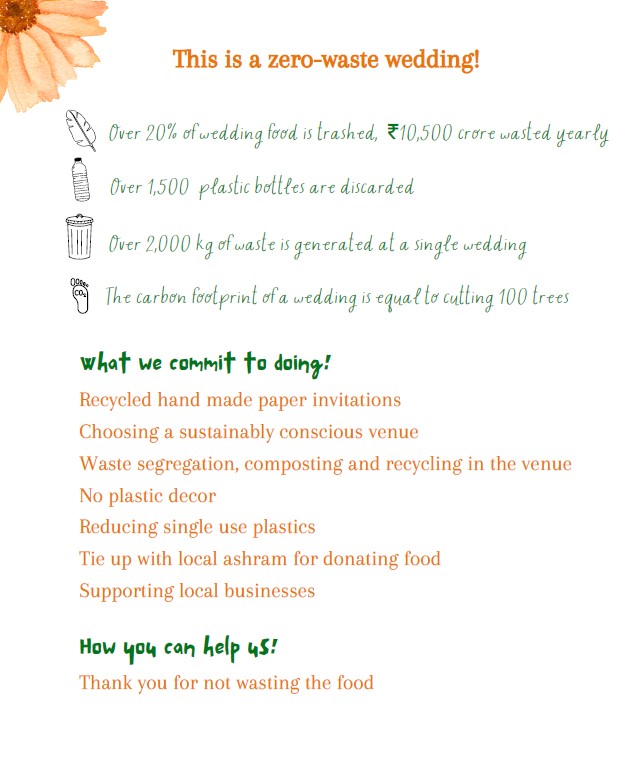
Over 20% of wedding food is trashed, Rs.10,500 crore wasted yearly;
Over 1,500 plastic bottles are discarded;
Over 2,000 kg of waste is generated at a single wedding;
The carbon footprint of a wedding is equal to cutting 100 trees;
So how did the families make a difference? Adyar Times spoke with the families and here are just some of the many steps they took…
Choosing a venue that supported their goal of sustainable practices
The families went to umpteen venues before finalising Illam Hospitality and Banquets, Sholinganallur. “The hall was featured in one of the leading newspapers for its sustainable concept. When we visited it, we were also very impressed by their ethics and efforts. Their interiors were made from fallen trees and doors of old houses, curtains from repurposed sarees and veshtis, and they had an onsite composting unit. There were no second thoughts after seeing this,” beamed V.M.Sankaran, father of the groom and a Kasturba Nagar resident.
With the beautiful decor already in place, the families didn’t believe in cluttering the hall with more decoration. “We opted for minimal decor, using only compostable and reusable materials,” said Sankaran. Their decor included bamboo, potted plants, cane furniture and garlands strung in banana fibre only. “We went to Koyambedu to find a supplier who was ready to string flowers only in banana fibre as it would make the decor truly compostable. Post-event we dried and reused the flowers also,” explained Kanaga, mother of the groom. At the wedding venue, the invitees were welcomed by a beautiful blackboard announcing the bride and groom, instead of plastic banners.
Choosing a caterer who supported their vision
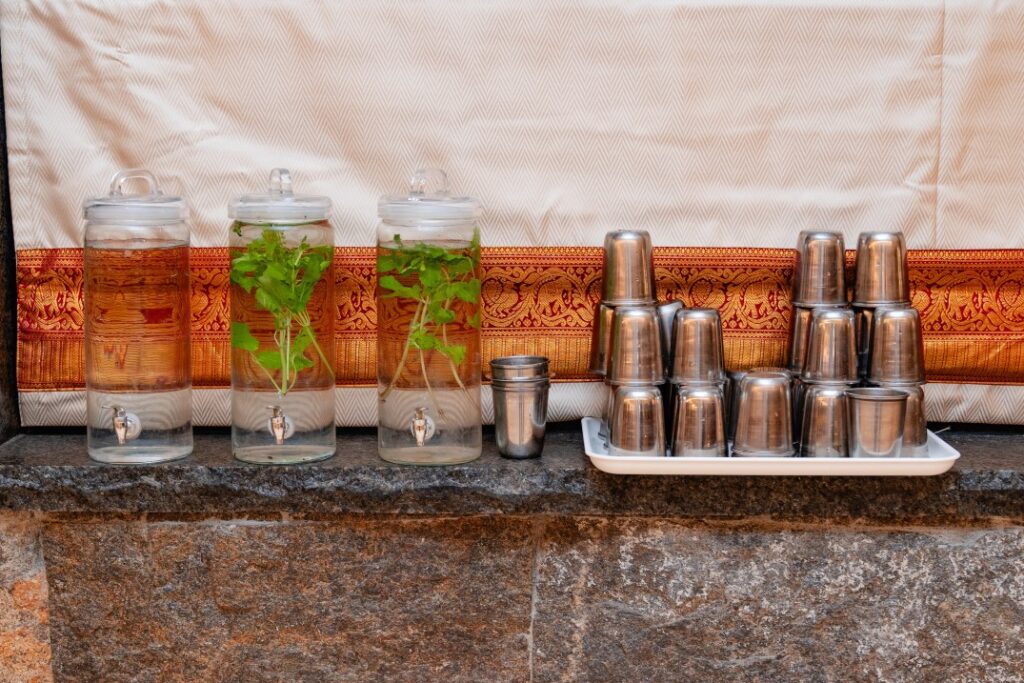
The families were very clear that there would be absolutely no single-use items used as part of catering – water bottles, paper cups, etc. And they did find a caterer who agreed to serve water and liquids in steel tumblers, glass bowls and melamine ware. This ensured that there was no dry waste at all and all the waste generated was compostable. “It definitely cost us a bit more to employ labour for the cleaning of the utensils, but it evened out with the other sustainable decisions we took,” Sankaran elucidated.
The families also decided to keep the menu simple with fewer items, to appeal to all alike, thus minimising food waste. “We also instructed the caterers not to serve food until the guests sat down,” highlighted Priya, the bride’s mother and added that they also tied up with a local ashram for donating the remaining food.
Even during the wedding ceremony, for the ritual of Oonjal, the riceballs were not laced with any chemicals, but natural colours. The elderly ladies were requested to throw the balls into designated bins which were later composted. During the same ceremony, the bride and groom were given an organic cloth handkerchief with natural coloured block-printed designs.
On the stage, the sweets and savouries (bakshanam) were placed on mandarai leaf and the same was distributed to the guests in a palm leaf basket along with the unbleached tambulam bag.
Throughout the different ceremonies, the guests were treated with drinks like buttermilk, paanagam and fresh fruit juices without white sugar.
Personal choices
“How did the meticulous planning happen for the wedding? How many days did you sit and brainstorm?” I asked the families, as I listened in awe at the lengths they went to make the wedding a near-zero-waste one.
Laughing, they said that commitment to a cause shows you the way ahead, “For any purchase we made, we were conscious that the money spent must be for a cause as much as possible.” The mandarai leaves and palm leaf boxes were procured from SHGs from interior Tamilnadu and the unbleached tamboolam bags were by Sura, a social enterprise, that works with women in rural Cuddalore on skilling and sustenance.
They also decided to share only e-invites and printed only minimal invitation cards using recycled paper.
The families also made a conscious decision to buy clothes only for the muhurtham ceremony – mainly cotton handloom, that too from places actively supporting artisans – Tula (Indira Nagar), Blue Lotus Handloom and Porgai Artisans. For all other ceremonies, all of them, including the bride and the groom, wore borrowed pre-loved costumes.
Feedback and verdicts
I asked the couple if it took any convincing to go the eco-way and they stated, “Absolutely not. Both the families are committed to sustainability and so it just clicked. ” The couple’s commitment also shows up in their daily lives – they mainly use only cycles to commute and do not use air-conditioners at home. How is it possible in this heat, I wonder, “Start it and you will get used to it!” they chimed.
What was the reaction of the guests at the wedding about your concept? “Everyone appreciated it, especially the idea of the palm leaf boxes. Took many of the guests back to their childhood days!” said Sankaran as he shared the numerous appreciation messages he received. One of them said, “To suit one of the befitting Gandhian principles – It’s easy to stand in the crowd but it takes courage to stand alone. On witnessing the couple wearing Khadhi clothes – I can’t find any words to express my gratitude towards entire family members except to stand alone with crossed hands to respect the traditional couple where our greetings are reciprocal to their attire depicting ‘Be the change that you wish to see in the world’.
Are sustainable / eco-friendly weddings expensive? “While some of the ideas may incur a cost, like employing labour for washing utensils, that can easily be offset by reducing your expenses in other departments like avoiding artificial fancy decor and minimising shopping etc. All in all, going green does not hike the costs. If done right, in fact, it can actually be cheaper!” they shared.
The families ended by saying that, even though they did their best, the perfect zero-waste wedding is still a dream considering current societal expectations.
Sharan and Porvika’s wedding was not just a celebration of love, but a powerful statement about living sustainably and thoughtfully, and that a meaningful celebration doesn’t have to come at the cost of the environment. This wedding was the 3rd zero-waste wedding by a resident of Kasturba Nagar. In their commitment to sustainability, such families set a benchmark for future weddings. In a world where extravagance often overshadows responsibility, these weddings stand as an inspiring reminder that with the right mindset, even life’s grandest moments can leave behind a greener footprint.
Sharan and his family can be contacted at [email protected].
To know more about the other eco-friendly family events, click the link: Kasturba Nagar residents show the way to near zero-waste events


